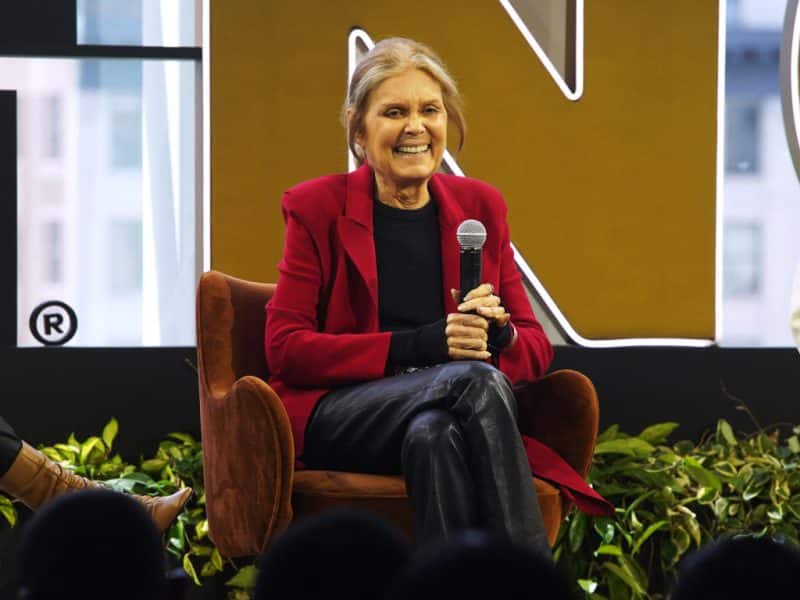
(WOMENSENEWS)– This week we have witnessed the historic approval by acclamation of the Democratic presidential ticket of Sens. Barack Obama and Joe Biden and a roaring crowd’s approval.
The moment lifts us to a new plateau of reconciliation and promise. It provides a small but critical catharsis on race that just might move beyond Denver’s Pepsi Center, site of the Democratic National Convention, in all sorts of hidden, subtle and surprising ways.
But before getting our hopes too high, we should step back and consider all the media hoopla about the keynote address by Michelle Obama earlier this week.
Her speech was so good that, as the saying goes, you could almost taste it.
In the well-modulated cadence of one who has mastered the art of Teleprompter talk, she made seamless segues between her family’s life challenges and the hard-won opportunities that have made her an all-American success story as the graduate of Princeton University and Harvard Law School, former senior executive of a giant health care institution and now wife of the Democrats’ presidential nominee.
Very smooth and elegant. But in no way surprising to many of us who, given her pedigree, expected nothing less.
Media Chips Away at Expectations
But our high expectations have been continually chipped away by members of the mainstream media this week, many of whom conveyed by their awe-struck tones and expressions that they could barely believe Michelle was capable of being as good as she is.
At one point I heard some of the 24-hour news chatterers sharing their belief that campaign coordinators had a plan B “insurance policy” in case Michelle somehow failed to prove ready for prime time in the political center ring.
I also heard that the leonine Sen. Teddy Kennedy was lined up ahead of Michelle on the speaking schedule to make sure the night went well, just in case her speech failed to rouse and impress.
Such unnecessary and anxious contingency planning–if real–reflects a stereotype about most black women that stands in stark contrast to our position, experience and abilities.
On the one hand, African American women hold higher-than-ever numbers of professional and advanced degrees. We are top-level executives and administrators and plenty of us travel the rarified super highways of success and achievement.
In the Democratic party this is particularly the case.
The 2008 Democratic National Convention’s roster finds African American women constituting more than 50 percent of black delegates, according to the Washington-based Joint Center for Political and Economic Studies.
Running the Party
Among those running the convention’s primary administrative committees–credentials, platform and rules–almost two-thirds are black women. Sixty-five percent of the central Democratic National Committee’s membership are black women. The vice chairs of both the DNC and of the convention in Denver–former Arkansas mayor Lottie Shackelford and Atlanta Mayor Shirley Franklin respectively–also are black women.
When media analysts express undue surprise at an African American woman’s commanding presentation it reinforces the idea that such accomplishment is rare. This is particularly warped in the context of the Democratic Party, given the numbers of black women in the party’s upper ranks.
A poll conducted by the New York Times and the National Council (formerly “of Christians and Jews”) a few years ago found whites, Latinos and Koreans all harboring distorted impressions about each other and African Americans as well. Some respondents had the impressions that blacks, who are 12 percent of the American population, were actually more than 50 percent.
A Wall Street Journal news article a few years ago reported on a study in a way that suggested black women far outnumber black men in business management. Actually, there was only a 1 percentage point difference in favor of black women, and then only in middle management posts.
These inaccuracies in perception can heighten hostilities and lead to counter-strategies to restore a more “equitable” balance.
In a 2006 speech, for instance, President Bill Clinton called for a shift of focus from black women to troubled black men and absent fathers, because “we fixed the black women’s problems” in his administration.
Two-Way Potential
Power-house black women such as Michelle Obama, in other words, have the potential to carry us forward or back, depending on how the media handles them.
If the media fails to exploit this chance to introduce Americans of different backgrounds to each other in a fair and culturally competent way, punitive attitudes could become even more harsh toward African American women struggling with single parenthood, joblessness and low-income employment, and other dependency issues.
Many years ago social psychologist William Ryan admonished Americans against blaming victims because people who may bear some resemblance to them have managed to succeed.
A contemporary success story like Michelle Obama’s, if over-hyped, has a dangerous potential for becoming a sledge hammer rather than an incentive . . . for blaming the victims whose racial identity, as much as anything, in fact has been their penalty.
So while it’s been wonderful to behold Michelle Obama’s stellar performance, I have to wonder if the media’s over-the-top reception will normalize higher expectations of black women, or somehow isolate her and Barack in an exotic, “special” category of black people.
I hope Mrs. Obama’s poise and polish does the former. I hope it breeds greater acceptance of the American-ness of African American women and broadens the range of our possible experiences in this country.
Dr. Yvonne Scruggs-Leftwich chairs the Center for Community and Economic Justice Inc.’s Sojourner Truth Forum for Interactive Justice, headquartered in St. Petersburg, Fla., and is a professor at the National Labor College in the Washington, D.C., area. Her most recent book is “Sound Bytes of Protest,” published by Third World Press.
Women’s eNews welcomes your comments. E-mail us at editors@womensenews.org.



